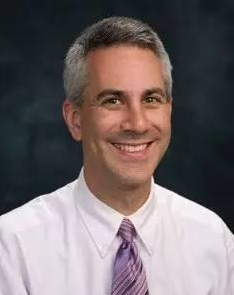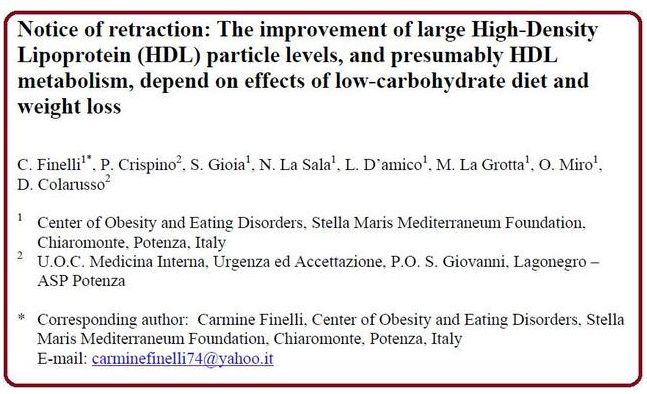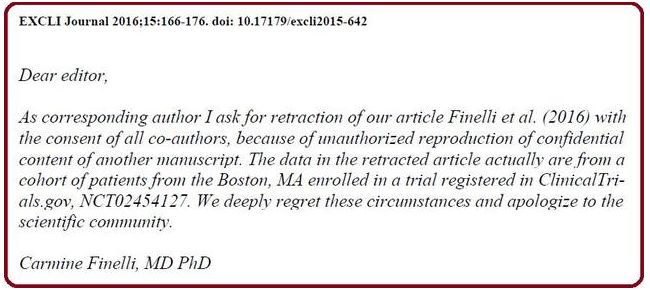污水處理設(shè)備 污泥處理設(shè)備 水處理過(guò)濾器 軟化水設(shè)備/除鹽設(shè)備 純凈水設(shè)備 消毒設(shè)備|加藥設(shè)備 供水/儲(chǔ)水/集水/排水/輔助 水處理膜 過(guò)濾器濾芯 水處理濾料 水處理劑 水處理填料 其它水處理設(shè)備

上海澤葉生物科技有限公司
會(huì)員1.png)

上海澤葉生物科技有限公司
會(huì)員1.png)
暫無(wú)信息 |
閱讀:1646發(fā)布時(shí)間:2016-12-14
2月13日,美國(guó)期刊《內(nèi)科學(xué)年鑒》(Annals of Internal Medicine)同時(shí)刊出兩篇文章,直指近期發(fā)生的惡性論文剽竊事件。令人驚訝的是,抄襲并發(fā)表論文者竟是該刊的審稿人,所抄內(nèi)容正是早些時(shí)候被審查的稿件。原作者直言不諱地發(fā)表了至剽竊者的信函,期刊也發(fā)表社論表明了立場(chǎng)。
在科研領(lǐng)域,抄襲、剽竊等高智商盜竊行為顯得比日常生活中更為常見。由于法律制度的不完善,此類行徑可能難以得到應(yīng)有的制裁。不過(guò),正義的聲音總會(huì)吶喊出來(lái),《內(nèi)科學(xué)年鑒》就zui近一起極為惡劣的審稿人剽竊行為做出了回應(yīng),希望這不僅能夠讓讀者明白事件的嚴(yán)重性,同時(shí)以儆效尤,杜絕此類行為的發(fā)生。

Michael L. Dansinger, MD, MS
Tufts University School of Medicine
2015年6月,波士頓塔夫茨大學(xué)的醫(yī)學(xué)博士Dansinger和同事向《內(nèi)科學(xué)年鑒》提交了題為“One-Year Effectiveness of the Atkins, Zone, Weight Watchers, and Ornish Diets for Increasing Large High-Density Lipoprotein Particle Levels: A Secondary Analysis of a Randomized Trial.”的論文。在經(jīng)過(guò)了外部同行評(píng)議后,期刊編輯決定拒稿,并將決議于2015年7月反饋給作者。
時(shí)隔一年,2016年8月,Dansinger突然發(fā)現(xiàn)了令人震驚的情況。今年2月23日發(fā)表在EXCLI Journal上的一篇文章幾乎和他們此前遞交給《內(nèi)科學(xué)年鑒》的稿件如出一轍。他很快意識(shí)到,這很可能是《年鑒》的審稿人剽竊了他們的稿件內(nèi)容,擅自發(fā)表。于是他很快了期刊編輯。

EXCLI Journal 上的涉事論文
經(jīng)確認(rèn),EXCLI Journal上該文章的一名意大利作者確實(shí)曾為《年鑒》審稿。《年鑒》了其本人,他對(duì)此供認(rèn)不諱。EXCLI Journal也同時(shí)獲悉此事,于2016年9月將該文撤稿。
按照通用的學(xué)術(shù)不端處理建議,《年鑒》了涉事人在文章所列機(jī)構(gòu)的領(lǐng)導(dǎo)。該機(jī)構(gòu)承認(rèn)知悉了此事,但并未就如何處理做進(jìn)一步說(shuō)明。

事發(fā)后涉事者的撤稿函
從《內(nèi)科學(xué)年鑒》的社論來(lái)看,這一事件在多個(gè)層面暴露了嚴(yán)重的問題。
首先,負(fù)責(zé)同行評(píng)議的審稿人應(yīng)確保稿件的機(jī)密性。在文章正式發(fā)布并可以作為信息源引用之前,他們應(yīng)避免在審稿過(guò)程中獲取稿件內(nèi)容以供自己使用。
第二,該審稿人明目張膽地竊取了他人成果,并幾乎原封不動(dòng)地抄襲了文字、表格和圖示。
第三,該審稿人編造了一組并不存在的歐洲病患,這是極為惡劣的行為,可能會(huì)導(dǎo)致其他人參考這些偽造數(shù)據(jù)并做出臨床決定。
第四,這篇剽竊文章?lián)碛卸辔还餐髡摺_@些作者同樣應(yīng)當(dāng)受到譴責(zé)。他們列上了自己的姓名,但顯然沒有做出任何科研貢獻(xiàn),甚至沒有對(duì)該研究是否真實(shí)存在做過(guò)驗(yàn)證。
《年鑒》編輯部對(duì)此也深感困擾,他們選擇并信任的審稿人竟然會(huì)做出如此道德敗壞之事。盡管以往沒有經(jīng)歷過(guò)類似的事件,但期刊對(duì)此事的態(tài)度還是非常明確。
與此同時(shí),受害人Dansinger博士也以“Plagiarist”為抬頭,寫了一封富含激情的公開信,痛斥這樣的學(xué)術(shù)不端。他指出,這一行為對(duì)雙方都帶來(lái)了傷害。這一成果基于他們先前的工作,從概念雛形到論文形成歷時(shí)5年,相當(dāng)于4000個(gè)小時(shí)的工作量。被抄襲的分析方法也是其同事花費(fèi)多年才建立起來(lái)的。而受到傷害的不僅是雙方人員,還包括抄襲者的機(jī)構(gòu)、學(xué)者對(duì)同行評(píng)議過(guò)程的信任,以及公眾對(duì)醫(yī)學(xué)研究的信任。
字里行間,我們可以感受到文字背后的憤怒。不過(guò)Dansinger博士也做到了理性處置,他希望將這一事件公開,為科研群體樹立正確的價(jià)值觀,也希望抄襲者能夠改邪歸正,將來(lái)為學(xué)術(shù)界帶來(lái)積極的影響。
下附Dansinger博士公開信全文:
Dear Plagiarist: A Letter to a Peer Reviewer Who Stole and Published Our Manuscript as His Own
Dr. Doctor,
I am aware that you recently admitted to wrongly publishing, as your own, a scientific research paper that I had submitted to Annals of Internal Medicine. After serving as an external peer reviewer on our manuscript, you published that same manuscript in a different medical journal a few months later. You removed the names of the authors and the research site, replacing them with the names of your coauthors and your institution.
It took 5 years from conceptualization of the study to publication of the primary analysis. This study was my fellowship project and required a lot of work. It took effort to find the right research team, design the study, raise the funds, get approvals, recruit and create materials for study participants, run the diet classes, conduct the study visits, compile and analyze the study data, and write the initial report. The work was funded by the U.S. government and my academic institution. The secondary analysis that you reviewed for Annals used specialized methods that took my colleagues many years to develop and validate. In all, this body of research represents at least 4000 hours of work. When you published our work as your own, you were falsely claiming credit for all of this work and for the expertise gained by doing it.
As you must certainly know, stealing is wrong. It is especially problematic in scientific research. The peer-review process depends on the ethical behavior of reviewers. Physicians and patients depend on the integrity of the process. Such cases of theft, scientific fraud, and plagiarism cannot be tolerated because they are harmful and unethical. Those who engage in such behavior can typically expect their professional careers to be ruined: Loss of reputation, loss of employment, and ineligibility for future research funding are the norm. Coauthors are also collaborators in the fraud, and such losses potentially apply to them as well. All the previous publications of those who steal others' work become suspect, and it reflects poorly on their training institutions, current employers, collaborators, and mentors.
It is hard to understand why you would risk so much. You have no doubt worked hard to become a physician and scientist. I know that you have published many research papers. It just doesn't make sense. Whether the pressure to publish is so intense, or whether the culture where you work is relatively permissive such that plagiarism is not taken as seriously, or whether getting caught seemed unlikely—it is hard to imagine why you would take this chance.
I hope you will not steal anyone else's research in the future. Instead, perhaps there is some way you can assist the scientific community's efforts to reverse the growing epidemic of plagiarism and scientific fraud. Helping to raise awareness of the problem and identifying potential solutions would be positive steps in the right direction.
商鋪:http://www.kindlingtouch.com/st550077/
主營(yíng)產(chǎn)品:分子生物學(xué)、免疫學(xué)、微生物學(xué)、細(xì)胞學(xué)、材料科學(xué),通用試劑、藥物合成試劑、手性化合物、催化劑及配體、分析試劑、生物試劑,檢測(cè)試劑等科研產(chǎn)品
環(huán)保在線 設(shè)計(jì)制作,未經(jīng)允許翻錄必究 .? ? ?
請(qǐng)輸入賬號(hào)
請(qǐng)輸入密碼
請(qǐng)輸驗(yàn)證碼
請(qǐng)輸入你感興趣的產(chǎn)品
請(qǐng)簡(jiǎn)單描述您的需求
請(qǐng)選擇省份